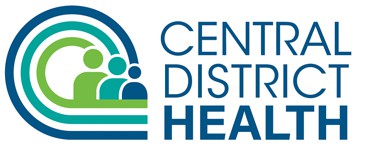Foodborne illnesses, sometimes called “food poisoning”, are common and preventable illnesses. Foodborne illnesses occur after eating food that has been improperly cooked or contaminated with bacteria, viruses, or toxic substances. Common symptoms of foodborne illnesses include diarrhea, stomach pain or cramping, nausea, vomiting, and fever. Some causes of foodborne illness can cause bloody diarrhea, however if bloody diarrhea occurs an individual should talk to their doctor to determine the cause of this symptom. Some individuals may require hospitalization for foodborne illnesses if they are unable to stay hydrated or need other supportive care.
The most common bacteria and viruses that cause foodborne illness in the United States are norovirus, Salmonella, Clostridium perfringens, Campylobacter, and Staphylococcus aureus. To learn more about these bacteria and viruses and others that can cause foodborne illness visit the page below:
The bacteria and viruses that cause foodborne illnesses are commonly associated with certain types of foods. Some of the foods are considered higher risk for illness if they are raw including raw or undercooked beef, chicken, pork, turkey, shellfish, eggs, and unpasteurized (raw) milk or other dairy products. Other foods sometimes get contaminated in the process of harvesting the food or in other stages of food production and processing. This contamination occurs with fruits and vegetables.
There are things individuals can do to protect themselves and their families from foodborne illnesses. To prevent foodborne illnesses individuals should:
- Wash your hands – before, during, after preparing food and before eating.
- Not cross-contaminate:
- When grocery shopping keep groceries separate (raw meat, poultry, seafood and their juices) away from other foods.
- When home keep raw meats, poultry, seafood, and eggs separate from all other foods in the refrigerator. Store raw meats, poultry, seafood in sealed containers or packages so the juices don’t leak onto other foods.
- Use one cutting board for raw meats, poultry, and seafood and a separate cutting board for produce, bread, and other foods that won’t be cooked.
- Do not wash raw meat, poultry, or eggs as you can spread germs from the juices splashing onto the sink or counters.
- Wash fresh fruits and vegetables prior to preparing and eating them.
- Cook food to the correct internal temperature.
Food Safety – Safe Minimum Internal Temperatures - Refrigerate food promptly.
- Keep the refrigerator at 40° or below and the freezer at 0° or below to keep food from spoiling.
- Package warm/hot food into several clean, shallow containers and then refrigerate. It is ok to put small portions of hot food in the refrigerator since it will chill faster.
- Refrigerate perishable food (meat, seafood, dairy, cut fruit, some vegetables, and cooked leftovers) within 2 hours. If food is exposed to temperatures above 90°, like a hot car or picnic, refrigerate within 1 hour.
- Thaw frozen food safely in the refrigerator, in cold water, or in the microwave.
FAQS
Call Central District Health’s Environmental Health phone number: 208-327-7499 or fill out the following form:
Report Food Poisoning to Central District Health
Some things you can do to stay safe include checking to make sure your food is thoroughly cooked, make sure food that should be hot is served hot and food that should be cold is served cold, and ensure you eat any leftovers within 3-4 days.
For more tips to stay safe, use the following links:
CONTACT
If you have questions about foodborne illnesses, please fill out the form or call us.
Communicable Disease Control
208-327-8625
Report Food Poisoning:
Ada & Boise Counties 208-327-7499
Elmore County 208-587-4407
Valley County 208-634-7194

